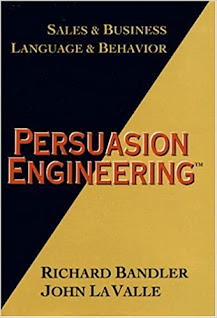Someone left the comment below on
The Islamization of the West and it reminds me of many similar comments I've gotten over the years, and similar feelings I've had:
"I am at a complete loss as to why CAIR, ISNA, ICNA, MPAC or this NMLA is even allowed to exist in America?? Are some Americans so dumbed down that they don't see the enemy right in front of them? Is this or any political party in government so stupid that they just turn a blind eye to what's happening?"
Can you feel the commenter's exasperation? Have you had this feeling before? We are in a strange situation: We try to simply share new information we've learned, and we find ourselves unable to share it — not because we are incapable of articulating it, but because our listeners do backflips trying to invalidate the information. They contort themselves into impossible cognitive pretzels in order to reject simple, factual information. It has been baffling to many of us. I know. I have heard from hundreds of our fellow counterjihadists about this.
And I know how it feels. I sometimes want to write off my fellow non-Muslims as idiots, but I know many of them are not stupid, so what is going on? What could be the cause of their seemingly stubborn stupidity on this subject?
Last night, I was reading Victor Davis Hanson's book,
The Father of Us All, and he said something I've never thought about before. Namely, that people in the West are acutely aware of the inequalities of the world — we in the West enjoy a material quality of life far better than billions of other people — and for a lot of Westerners, this presents a serious ethical problem.
They feel guilty about it. They need to assuage their guilt in some way. But here is the key insight I've never thought about before: They need to assuage their guilt in some way other than giving up the goodies, because even though they don't like the inequality, they don't want to give up the high quality of life.
In other words, many people need to have a way to keep enjoying the material riches, but still rectify or expiate the guilt they feel about others being so poor.
The solution many have chosen is to go out of their way to see what's wrong with their own culture, and to give other cultures an undeserved reverence.
A FAMILIAR SOLUTION
This solution is something we are familiar with in our personal relationships. If you are more successful than a friend of yours, for example, one way you can help him feel better and prevent him from resenting you is to point out your own faults. Those who are exceptionally successful often habitually display humility, making it a point to underline their own personal imperfections.
The successful person can do this with integrity because everyone has faults, even very competent people, and because every success is partly a result of pure luck — the luck of being born in a free country, the luck of being born with ambition, a high energy, basic intelligence, good health, etc. Many people use this stratagem, knowingly or unknowingly, because it helps. The self-deprecation helps a successful person continue to enjoy the material goodies without feeling too guilty about it around other people, and without making other people feel bad about themselves or resentful of the successful person.
It shows no class to put down the "less fortunate" as lazy, stupid, ignorant, etc. It is the height of vulgarity to criticize or humiliate or ridicule or rebuke or denounce the less fortunate.
And I think the people who will not listen to you, or who argue in defense of Islam even when they know nothing about Islam, are doing the same thing on a cultural scale. In other words, when you, a fellow member of the fortunate class (a Westerner) start bad-mouthing another culture — when you start criticizing Islamic doctrine — you have violated an important code of etiquette. And for them to listen to you and accept what you say is for them to violate it too.
What we're dealing with is a "cultural humility" about Western culture and achievements. People are going out of their way to point out what is wrong with their own Western culture or their country in particular. They're not casual about this — there is an underlying intensity. They seem hell-bent on criticizing their own country or culture.
Now it makes sense that it seems so deeply felt, that your listeners seem so committed to stopping you from criticizing Islam and committed to criticizing their own culture. Many people rely on this criticism to allow them to enjoy their abundant technology and relative luxury without too much guilt.
They feel less guilty because they express a sufficient degree of contempt for their own highly successful culture, and they feel (or at least profess) sufficient admiration for all other cultures.
The simple, factual information about Islam you want to share threatens to undermine this whole unformulated creed, which endangers the linchpin of their emotional harmony and ethical congruence. They can't let it in.
To let it in would require them to rearrange an important feature of their worldview and their self-image. This is not a minor matter. This is not a small, inconsequential barrier we can easily sweep aside. It is a major psychological problem that stands in the way of
our goal of educating people about Islam. Understanding what it is and what we're up against is the first step.
SURVIVOR GUILT
We are talking about a psychological problem similar to
survivor guilt. People who have survived plane crashes or concentration camps or some other event where others have died sometimes suffer a painful, unrelenting guilt because they survived while others perished. It wasn't fair, and they have a problem dealing with the unfairness.
Westerners are in a similar position on a global scale. Think about it. We've seen close-up, full-color pictures of our fellow human beings starving in Africa, imprisoned in China, tortured in Iran, executed in Saudi Arabia, while we drive to and from our pleasant activities in clean, comfortable cars, go to grocery stores overflowing with food, come home to a comfortable shelter with cable television, microwave ovens, high-speed internet, and enjoy an immense degree of personal freedom. It isn't fair. Yes, we may have worked to earn the money, but had we been born in Iran or China, our lives would be tragically different, regardless of how hard we worked.
We got lucky and it definitely isn't fair. At some level, I think most of us feel some kind of guilt about this. I think we should have a name for it. Born in a Western Country Guilt? I don't know what to call it, but clearly some of us handle the guilt better than others.
How do you live with the inequality of the world? Some people think those of us in Western countries have created a superior culture, so we deserve our wealth. Some think the European or "white" race is genetically superior. Some
good evidence indicates the inequalities are a result of geography. And some just consider themselves lucky and try to help others when they can.
We've all found a way to live with it, but the people we're having a hard time communicating with about Islam have found a less-than-optimal way of dealing with it. It's better than the path self-righteous racists use, but it is not ideal (or even adequate) — it's preventing them from confronting and accepting important facts about the real world.
Multiculturalism is one way this guilt manifests itself. Multiculturalism says all cultures are equal. None is better than others. Moral equivalence is another. Moral equivalence says, "Yes, that other culture does terrible things, but look, we've done terrible things too," so again, we are not better than others.
White Guilt is another. Each of these different manifestations all stem from the same fundamental need to relieve guilt while still enjoying the safety and wealth and comfort of their Western society.
We have a need, wrote Hanson, for "cultural neutrality" — for seeing ourselves as no better than anybody else. This doesn't sound so bad, but the need for cultural neutrality can be so well-ingrained that it causes a kind of willful blindness that overrides common sense and the basic instinct of self-preservation. It has gone off the deep end. Hanson wrote: "...so strong is the tug of cultural neutrality that it trumps even the revulsion of Western progressives at the ... jihadist agenda, with its homophobia, sexism, religious intolerance, and racism."
It is important to clearly understand this perplexing, confusing, exasperating phenomenon we are all running into: The compulsive, undiscriminating reflex to defend Islam and criticize Western countries. The source of the resistance we're coming up against is this: People feel guilty for having so much more than others, and this prevents them from accepting your legitimate criticisms of Islamic doctrine.
With this understanding, we can begin to find more effective ways of educating our fellow non-Muslims on
the basic facts about Islam.
Read more...









